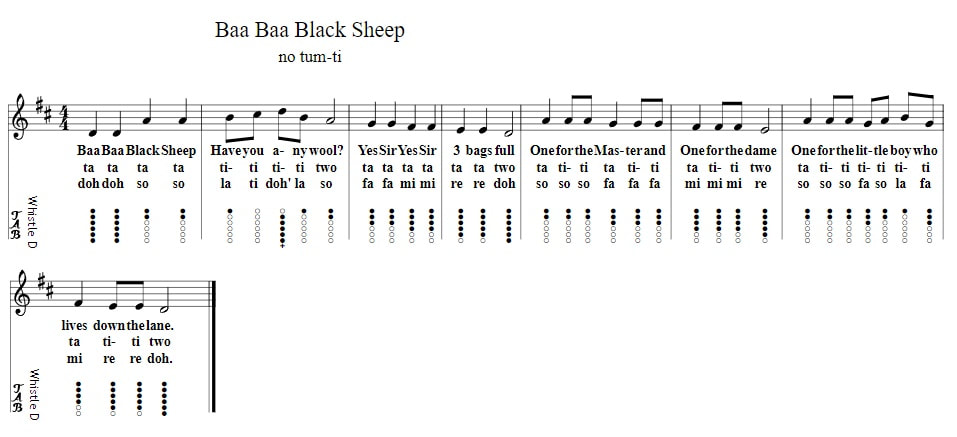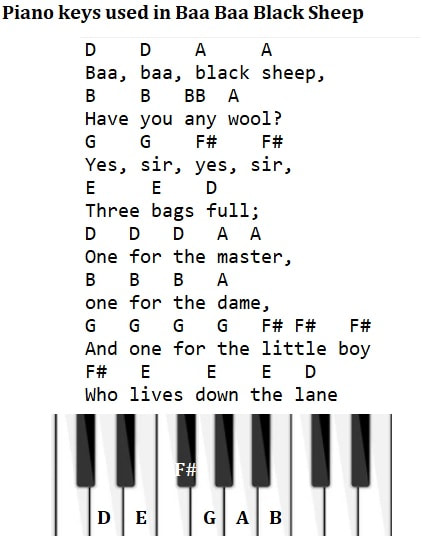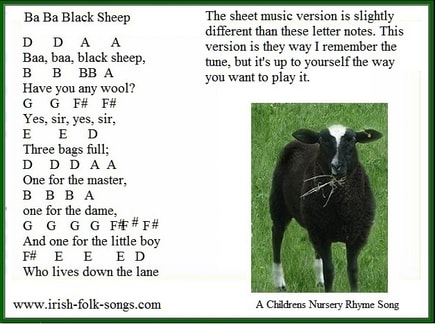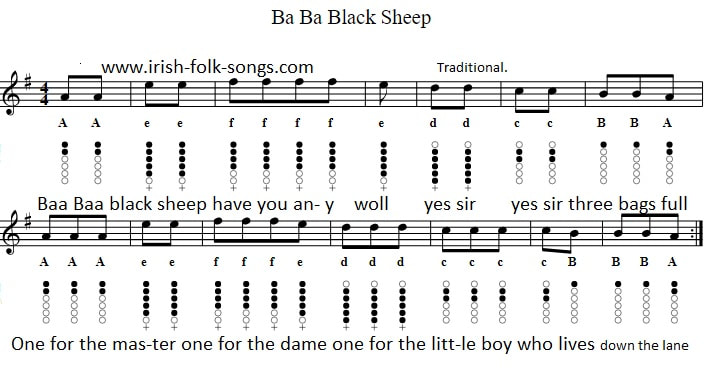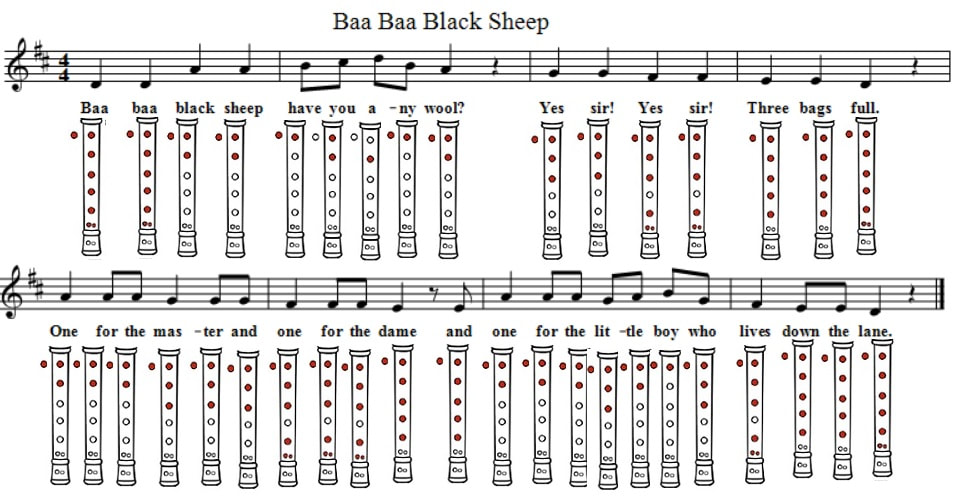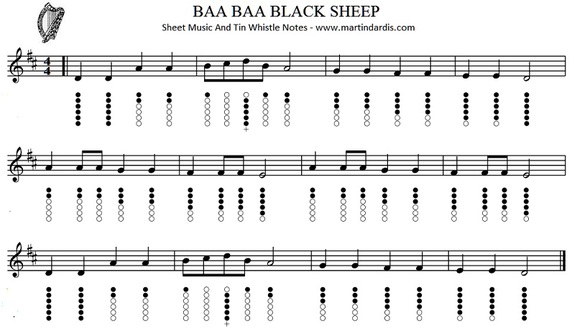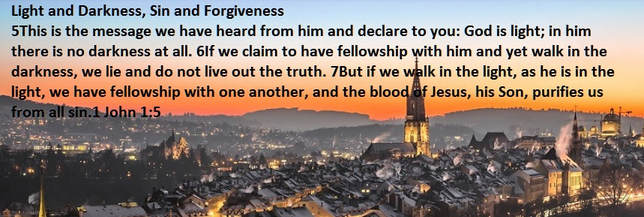Baa Baa Black Sheep Sheet Music And Tin Whistle Notes
Piano keyboard letter notes included. A traditional children's song which is known everywhere. Baa Baa black sheep solfege piano sheet music notes [ do re mi ] included.You may notice that in the youtube video I play this song different than the way the first piece of music is written. That's because it's the way I remember how the tune goes. You take your pick. The easy to follow letter notes for recorder or flute are included. I have included a version in the key of G also which goes a lot higher in key. The finger chart for the recorder is included for beginners.
How to play baa baa black sheep on tin whistle
| learn-how-to-play-baa-baa-black-sheep-on-tin-whistle.pdf |
If you use these letter notes then the piano / keyboard pdf ebook of letter notes may be for you ?
This song along with over 100 others are included in my Tin Whistle Song Book which contains the easy to follow letter notes.
Ba Ba Black Sheep sheet music for tin whistle in G Major. Slightly higher than the version above
recorder notes finger chart for beginners
The nursery rhyme 'Baa Baa Black Sheep' is a beloved children's song that has stood the test of time and has become a cultural staple in many countries around the world. Despite its simple lyrics and catchy tune, the song has a long and complex history that has evolved throughout the years.
The origins of 'Baa Baa Black Sheep' can be traced back to the 18th century in England, where it was first published in the book 'Tommy Thumb's Pretty Song Book' in 1744. At the time, the lyrics of the song were slightly different, with the first line reading 'Bah, Bah, a black sheep.' It wasn't until the early 19th century that the lyrics were changed to the more familiar 'Baa Baa Black Sheep,' which is believed to have been influenced by the popularity of the novel 'Little Black Sambo' by Helen Bannerman.
The original lyrics of the song tell the story of a black sheep who has three bags of wool - one for the master, one for the dame, and one for the little boy who lives down the lane. This simple narrative has led to many interpretations and theories about the meaning behind the song. Some believe that it is a reference to the heavy taxes imposed on wool merchants in medieval England, while others see it as a critique of the unequal distribution of wealth in society.
In addition to its English roots, 'Baa Baa Black Sheep' has also been adapted and translated into numerous languages, making it a truly global nursery rhyme. In many countries, the lyrics have been altered to reflect local cultures and traditions. For example, in the United States, the song is often sung with the line 'One for my master, one for my dame, and one for the little boy who lives down the lane' replaced with 'One for the little boy who lives down the lane, one for the little girl who cries down the lane, and one for the little baby who smiles down the lane.' This change reflects the American emphasis on gender equality.
The song's popularity has also led to various parodies and adaptations, with new versions being created for different occasions such as birthdays or holidays. One of the most famous adaptations is the Christmas version, 'Baa Baa White Sheep,' which replaces the black sheep with a white one and the three bags of wool with three gifts for the baby Jesus. This adaptation highlights the song's ability to be adapted and transformed to fit different cultural contexts.
Over the years, 'Baa Baa Black Sheep' has not been without controversy. The use of the word 'black' has been criticized for perpetuating negative stereotypes and promoting racial insensitivity. In response to these concerns, some have suggested changing the lyrics to 'Baa Baa Rainbow Sheep' or 'Baa Baa Green Sheep.' However, others argue that the song's historical context should be taken into consideration, and that changing the lyrics would erase its rich history and cultural significance.
Despite the debate surrounding its lyrics, 'Baa Baa Black Sheep' continues to be a beloved nursery rhyme that has been passed down from generation to generation. Its catchy tune and simple lyrics make it a popular choice for parents and teachers to introduce to young children. The song's enduring popularity is a testament to its ability to transcend time and cultural barriers.
In conclusion, 'Baa Baa Black Sheep' is more than just a simple children's song. It is a cultural phenomenon that has evolved and adapted throughout the years, reflecting societal changes and values. Its rich history and widespread popularity make it a valuable piece of our cultural heritage, and its legacy is sure to continue for generations to come.
The origins of 'Baa Baa Black Sheep' can be traced back to the 18th century in England, where it was first published in the book 'Tommy Thumb's Pretty Song Book' in 1744. At the time, the lyrics of the song were slightly different, with the first line reading 'Bah, Bah, a black sheep.' It wasn't until the early 19th century that the lyrics were changed to the more familiar 'Baa Baa Black Sheep,' which is believed to have been influenced by the popularity of the novel 'Little Black Sambo' by Helen Bannerman.
The original lyrics of the song tell the story of a black sheep who has three bags of wool - one for the master, one for the dame, and one for the little boy who lives down the lane. This simple narrative has led to many interpretations and theories about the meaning behind the song. Some believe that it is a reference to the heavy taxes imposed on wool merchants in medieval England, while others see it as a critique of the unequal distribution of wealth in society.
In addition to its English roots, 'Baa Baa Black Sheep' has also been adapted and translated into numerous languages, making it a truly global nursery rhyme. In many countries, the lyrics have been altered to reflect local cultures and traditions. For example, in the United States, the song is often sung with the line 'One for my master, one for my dame, and one for the little boy who lives down the lane' replaced with 'One for the little boy who lives down the lane, one for the little girl who cries down the lane, and one for the little baby who smiles down the lane.' This change reflects the American emphasis on gender equality.
The song's popularity has also led to various parodies and adaptations, with new versions being created for different occasions such as birthdays or holidays. One of the most famous adaptations is the Christmas version, 'Baa Baa White Sheep,' which replaces the black sheep with a white one and the three bags of wool with three gifts for the baby Jesus. This adaptation highlights the song's ability to be adapted and transformed to fit different cultural contexts.
Over the years, 'Baa Baa Black Sheep' has not been without controversy. The use of the word 'black' has been criticized for perpetuating negative stereotypes and promoting racial insensitivity. In response to these concerns, some have suggested changing the lyrics to 'Baa Baa Rainbow Sheep' or 'Baa Baa Green Sheep.' However, others argue that the song's historical context should be taken into consideration, and that changing the lyrics would erase its rich history and cultural significance.
Despite the debate surrounding its lyrics, 'Baa Baa Black Sheep' continues to be a beloved nursery rhyme that has been passed down from generation to generation. Its catchy tune and simple lyrics make it a popular choice for parents and teachers to introduce to young children. The song's enduring popularity is a testament to its ability to transcend time and cultural barriers.
In conclusion, 'Baa Baa Black Sheep' is more than just a simple children's song. It is a cultural phenomenon that has evolved and adapted throughout the years, reflecting societal changes and values. Its rich history and widespread popularity make it a valuable piece of our cultural heritage, and its legacy is sure to continue for generations to come.
Baa Baa black sheep solfege sheet music notes
Black Sheep Lyrics [ 2 ]
I'm the black sheep of the family
Never fit in, always felt lonely
Different from the rest, I could see
But I learned to embrace my uniqueness, you see
Chorus:
I'm the black sheep, I won't conform
I'll stand out, in the eye of the storm
I'll be true to myself, no matter the cost
I'm the black sheep, I'll never be lost
Verse 2:
Growing up, I was always outcasted
But I never let it get me down, I lasted
I found my own path, my own way
And I'll keep on going, every single day
Chorus:
I'm the black sheep, I won't conform
I'll stand out, in the eye of the storm
I'll be true to myself, no matter the cost
I'm the black sheep, I'll never be lost
Bridge:
I may not be like everyone else
But I've got my own story to tell
I won't be silenced, I won't be tamed
I'll be proud of who I am, unashamed
Chorus:
I'm the black sheep, I won't conform
I'll stand out, in the eye of the storm
I'll be true to myself, no matter the cost
I'm the black sheep, I'll never be lost
Outro:
So here's to all the black sheep out there
Don't let anyone tell you to beware
Embrace your uniqueness, let it shine
You're the black sheep, and that's just fine.
I'm the black sheep of the family
Never fit in, always felt lonely
Different from the rest, I could see
But I learned to embrace my uniqueness, you see
Chorus:
I'm the black sheep, I won't conform
I'll stand out, in the eye of the storm
I'll be true to myself, no matter the cost
I'm the black sheep, I'll never be lost
Verse 2:
Growing up, I was always outcasted
But I never let it get me down, I lasted
I found my own path, my own way
And I'll keep on going, every single day
Chorus:
I'm the black sheep, I won't conform
I'll stand out, in the eye of the storm
I'll be true to myself, no matter the cost
I'm the black sheep, I'll never be lost
Bridge:
I may not be like everyone else
But I've got my own story to tell
I won't be silenced, I won't be tamed
I'll be proud of who I am, unashamed
Chorus:
I'm the black sheep, I won't conform
I'll stand out, in the eye of the storm
I'll be true to myself, no matter the cost
I'm the black sheep, I'll never be lost
Outro:
So here's to all the black sheep out there
Don't let anyone tell you to beware
Embrace your uniqueness, let it shine
You're the black sheep, and that's just fine.
